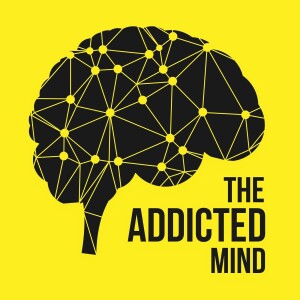
111: Mindbloom & Psychedelic Medicine with Dylan Beynon
 2020-12-18
2020-12-18
On this episode of The Addicted Mind Podcast, Duane talks to Dylan Beynon, founder, and CEO of Mindbloom, a health and well-being company that provides physician-prescribed psychedelics and guided ketamine therapy.
Dylan describes the time he first experienced MDMA at the suggestion of a friend who thought he needed to break out of his shell. Having an enlightening experience, Dylan sought to figure out how to use ketamine to help people break out of their traumas and addictions. But how does ketamine actually help you?
Two years ago, under ketamine therapy, Dylan personally realized the therapeutic value of psychedelics. He explains that the effects of ketamine therapy are that they open up the brain’s neuroplasticity, which allows people to lay down some new ways of thinking. It can ultimately push people out of their established neuropathways to open their eyes to new options for positive change.
What is the difference between recreational and therapeutic use? Research has shown that single, recreational use of ketamine in a controlled environment has a response rate for symptoms of depression of 65 to 70%, Dylan explains, which is much higher than common SSRIs like Lexapro and Wellbutrin.
Mindbloom has three main goals:
- Dramatically increase access to psychedelic therapy. Which means dropping prices and translating to telehealth options. This also means investing in education and content resources.
- Deliver exceptional clinical outcome, and
- Deliver exceptional client experience.
A lot of psychedelic therapy is in setting the stage for lasting behavioral changes from engaging neuroplastic states. Preparation, experience, and integration are the three stages of psychedelic therapy. Great effort goes into preparing clients for the experience and what to do when under a psychedelic experience. They try to get clients to get into the habit of journaling so that they do not forget the new “feelings” or “memories” they experience during the opened window of neuroplasticity.
The mission at Mindbloom is to “transform minds today to transform lives tomorrow.” Their protocol is four ketamine therapy sessions over 1-2 months. The neuroplasticity and behavioral changes should compound over that time period. The goal, though, is indefinite lasting change. And overall, it is extremely safe to use in a controlled setting. There are dangers when used recreationally, but Mindbloom is committed to providing safe access to this revolutionary means of therapy.
Support this podcast at — https://redcircle.com/the-addicted-mind-podcast/donations
Learn more about your ad choices. Visit megaphone.fm/adchoices
More Episodes
Create your
podcast in
minutes
- Full-featured podcast site
- Unlimited storage and bandwidth
- Comprehensive podcast stats
- Distribute to Apple Podcasts, Spotify, and more
- Make money with your podcast
It is Free
- Privacy Policy
- Cookie Policy
- Terms of Use
- Consent Preferences
- Copyright © 2015-2024 Podbean.com






